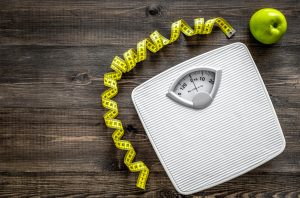 Probiotics are getting more press each and every day for their health benefits. From skin health, improving bone health, and of course, enhancing gut health, the possibilities seem endless. In fact, a recent study shows that combining a probiotic with breastfeeding in the first year of life can have improvements in the gut health of infants.
Probiotics are getting more press each and every day for their health benefits. From skin health, improving bone health, and of course, enhancing gut health, the possibilities seem endless. In fact, a recent study shows that combining a probiotic with breastfeeding in the first year of life can have improvements in the gut health of infants.
Basics of probiotics
Probiotics are simply any bacteria, fungi, or other living organism that has the potential to improve health to the host. The health of the body depends on a balance of different bacteria in the gut. An imbalance could lead to health problems such as gas, bloating, constipation, and other gut health issues. You can maintain a good balance of probiotics in the gut by consuming a diverse probiotic supplement every day. You can find good bacteria in fermented foods like yogurt, sauerkraut, or kimchi as well.
To feed such probiotics, it is important to consume plenty of fruits, vegetables, and healthy whole grains like oats or wheat bran. Prebiotic foods like these are important to maintain healthy levels of good bacteria. Together, probiotics and prebiotics can improve the health of the gut, immune system, and in turn overall health.
Breastfeeding and probiotics
A certain type of bacteria, known as Bifidobacterium infantis, is found naturally in the gut of infants upon birth. This bacterium helps to keep the gut healthy. It is usually in lower concentrations in the gut of babies from developed countries. This bacterium is nourished by breast milk from the infant’s mother, acting in the same way a typical prebiotic food would to a probiotic strain.
A study of mothers and breastfed infants looked at the effect of Bifidobacterium infantis supplements on infant’s gut health. One group of mothers and babies received the supplement with lactation support from day 7 to 21 after birth. Meanwhile, the other group received only lactation support. Study results show that those given the probiotic had positive changes in the make-up of the infant feces for up to a year after treatment. During this year, the “good” bacteria crowded out “bad” bacteria linked with asthma, allergies, and other immune-related diseases. This study suggests that this probiotic, upon further study, could help prevent immune-related diseases in babies from developed countries.
Which probiotic should I take?
There are so many types of probiotics on the market today. This can make it confusing to know which one to choose. Every probiotic strain has its unique benefits, so you may want to do your research before choosing one. A qualified alternative healthcare provider, such as a naturopath, may be able to assist you in making your choice.
Regardless of which strains you choose, a diverse group of strains is recommended. Diversity of bacteria is important to help your gut create a balanced population. Also, a capsule or other medium will allow optimal survival of the bacteria as it travels to your gut. One example of a high quality probiotic is Biovia 30 by Vita Sciences. This probiotic contains 30 billion colony forming units of bacteria and 10 different strains. Furthermore, Biovia 30 can help boost the immune system and improve digestive health with regular use.
-written by Staci Gulbin, MS, MEd, RD, LDN
References:
Healthline (accessed July 31, 2018) “The 19 Best Prebiotic Foods You Should Eat.”
Nagpal, R., et al. (2012) “Probiotics, their health benefits and applications for developing healthier foods: a review.” FEMS Microbiology Letters, 334(2012): 1-15.
National Center for Complementary and Integrative Health (accessed May 17, 2018) “Probiotics: In Depth.”
Science Daily (June 9, 2018) “Bifidobacteria supplement colonizes gut of breastfed infants.”
 Night shifts, or working from evening to morning, can be rough on your body and mind. Your meal patterns can become confused. Sleeping patterns can become thrown off course. And in turn, weight gain and sleeping issues can develop over time. A recent study has found that night shifts can cause digestive problems over time by throwing off the body’s internal clock.
Night shifts, or working from evening to morning, can be rough on your body and mind. Your meal patterns can become confused. Sleeping patterns can become thrown off course. And in turn, weight gain and sleeping issues can develop over time. A recent study has found that night shifts can cause digestive problems over time by throwing off the body’s internal clock. Probiotics have become the talk of the town, and for good reason. Every day more research shows that taking probiotics can reduce inflammation in the gut, and in turn, may help reduce risk of inflammatory conditions such as heart disease, eczema, and inflammatory bowel disease. Therefore, adding a probiotic to your daily routine may be the answer to help free your gut, and in turn your body, from inflammation.
Probiotics have become the talk of the town, and for good reason. Every day more research shows that taking probiotics can reduce inflammation in the gut, and in turn, may help reduce risk of inflammatory conditions such as heart disease, eczema, and inflammatory bowel disease. Therefore, adding a probiotic to your daily routine may be the answer to help free your gut, and in turn your body, from inflammation. Whether you walk, run, swim, cycle, or dance, exercise is a great way to keep your heart in tip top shape. Exercise is also recommended for weight loss, controlling blood glucose levels, and even for helping reduce stress by releasing endorphins. Recent research has shown that exercise may also be good for reducing inflammation in the body, and in turn reducing your risk for many chronic diseases.
Whether you walk, run, swim, cycle, or dance, exercise is a great way to keep your heart in tip top shape. Exercise is also recommended for weight loss, controlling blood glucose levels, and even for helping reduce stress by releasing endorphins. Recent research has shown that exercise may also be good for reducing inflammation in the body, and in turn reducing your risk for many chronic diseases. Do you get cramps in your side after eating certain foods? Do you feel bloated, gassy, or suffer from constipation? If so, then you may have an imbalance in your gut bacteria. Probiotics may be able to help you improve your digestive health.
Do you get cramps in your side after eating certain foods? Do you feel bloated, gassy, or suffer from constipation? If so, then you may have an imbalance in your gut bacteria. Probiotics may be able to help you improve your digestive health. With the summer months approaching and weather warming, weight loss may be on your mind. With every click of the remote, there are commercials advertising weight loss plans, exercise equipment, and fat burning supplements claiming to help you manage your weight. However, a recent study has shown that regular eating versus dieting may be the answer to long term weight loss and management.
With the summer months approaching and weather warming, weight loss may be on your mind. With every click of the remote, there are commercials advertising weight loss plans, exercise equipment, and fat burning supplements claiming to help you manage your weight. However, a recent study has shown that regular eating versus dieting may be the answer to long term weight loss and management. Eat your veggies, they say. Whether you are trying to lose weight, improve your blood pressure, or just simply trying to live well, you may be told to eat more fiber in your diet. Fiber is not only good for managing weight or keeping your heart healthy though. A recent study has found that more fiber in your diet may actually help improve the health of those with type 2 diabetes.
Eat your veggies, they say. Whether you are trying to lose weight, improve your blood pressure, or just simply trying to live well, you may be told to eat more fiber in your diet. Fiber is not only good for managing weight or keeping your heart healthy though. A recent study has found that more fiber in your diet may actually help improve the health of those with type 2 diabetes. Do you get stabbing abdominal cramps after eating a fatty meal? Does dairy or gluten cause uncomfortable gas and bloating? Are doctors unsure of the origin of your chronic constipation or diarrhea? If you answered yes to any of these questions, then you may have what is called Irritable Bowel Syndrome (IBS). Although changes in the diet may be helpful in many cases of IBS, research shows that vitamin D may also help those with this condition.
Do you get stabbing abdominal cramps after eating a fatty meal? Does dairy or gluten cause uncomfortable gas and bloating? Are doctors unsure of the origin of your chronic constipation or diarrhea? If you answered yes to any of these questions, then you may have what is called Irritable Bowel Syndrome (IBS). Although changes in the diet may be helpful in many cases of IBS, research shows that vitamin D may also help those with this condition. If you have ever tried to lose weight, then you probably have been told to track your calories. Most calorie trackers focus on keeping track of the calories you consume through food. On the other hand, fitness trackers or workout machines may track how many calories you burn during the day. However, is there more to the story of weight loss, or is calories in and calories out the only key to success? A recent report by health experts reveal that there may be more than simple math in the weight loss equation.
If you have ever tried to lose weight, then you probably have been told to track your calories. Most calorie trackers focus on keeping track of the calories you consume through food. On the other hand, fitness trackers or workout machines may track how many calories you burn during the day. However, is there more to the story of weight loss, or is calories in and calories out the only key to success? A recent report by health experts reveal that there may be more than simple math in the weight loss equation. Do you think you eat enough fruits and vegetables every day? You may track your macronutrients, have an apple a day, and be free of digestive concerns but still be missing the mark. A recent report by the Centers for Disease Control (CDC) has found that most adults in the United States could stand to eat a lot more fruits and vegetables each day.
Do you think you eat enough fruits and vegetables every day? You may track your macronutrients, have an apple a day, and be free of digestive concerns but still be missing the mark. A recent report by the Centers for Disease Control (CDC) has found that most adults in the United States could stand to eat a lot more fruits and vegetables each day.